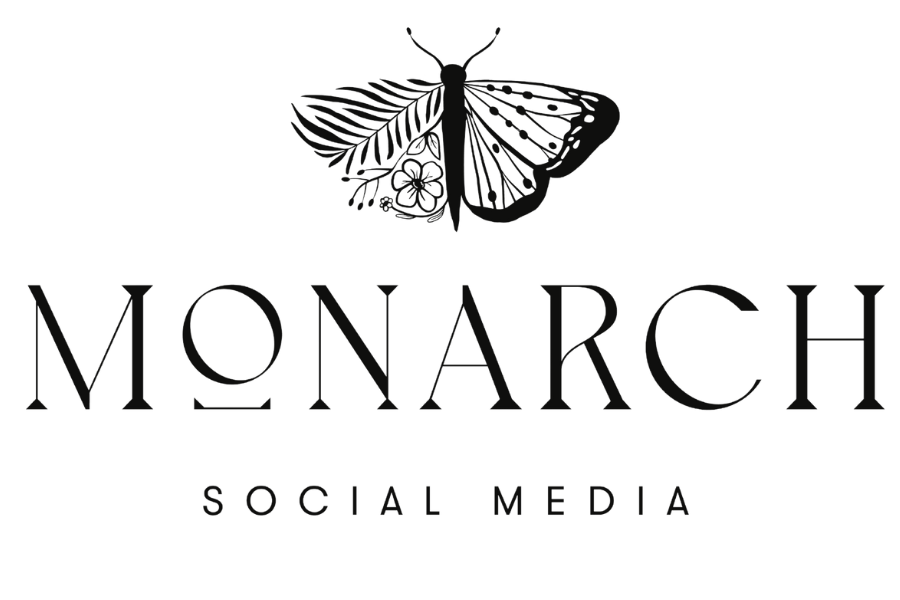Business owners in Toronto often reach a moment of frustration when they begin exploring social media support. They open Google (or ChatGPT) expecting a straightforward answer and instead find pricing that stretches from a few hundred dollars to more than ten thousand...
Three Questions to Ask Before You Sign a Social Media Contract
Jack of all trades, master of none.
You’ll hear us say this phrase a lot at Monarch. The saying couldn’t be more relevant than in social media. Achieving social media results takes a lot of time, work and effort.
We can’t tell you how often our clients come to us after having their social media managed by a full-service digital agency that does a bit of everything. They come to us because they’re not seeing any results from their efforts, even though ads are being run and content is posted.
Spoiler alert: That’s not social media marketing. That’s just crossing off tasks from a list.
Social media marketing involves more than just completing tasks on a list. Often, people new to their careers are assigned the role of social media manager. It tends to be overwhelming due to the significant workload required to achieve results. Usually, this happens because the key decision-makers at the Agency need a clearer understanding of the role’s responsibilities and end up overburdening one person with all the tasks. It’s why we lose so many potential excellent social media managers before they become established in their careers. I’ve seen it happen repeatedly to people with so much potential to impact this space. The burnout from this job is real.
So, before hiring an Agency that provides SEO, SEM, Website Builds, Graphic Design Services, Content Creation, Data analysis and every other digital service under the sun, ask them the following three questions.
How many people are responsible for Social Media Management at your Agency?
This is the most critical question you can ask an agency. If the answer is less than three dedicated social media managers, it’s a red flag. We achieve measurable success for our clients by dividing the job of social media management into the respective roles. Our Community Managers spend all day answering comments and questions and using active engagement practices to build relationships with our client’s target demographics. Our Videographer works exclusively on shooting and editing our clients’ video content and optimizing it for the platforms. Our Content Creators work with graphic and image-based content, aligning the content with the strategy that the Social Media Strategist sets. Our Social Media Strategist is responsible for running the paid side of social media strategy, aligning with the success of the organic results for a lower CPC for our clients.
Social media is not a one-person job, so if the Agency you’re talking to is putting it all on the shoulders of one person, they’re telling you they don’t understand what it takes to create successful results long-term.
What types of engagement practices are you going to use within my accounts?
If they can’t answer this question without running to Google, it’s a red flag. Engagement practices are not nice to have; they’re a necessity if you want your content to be seen by social media users. “Don’t post and ghost” is another saying we often use at Monarch.
If you’re not actively using engagement practices to interact with your client’s target demographic and community, then the algorithms won’t show your content to your followers or new social media users. Algorithms reward accounts with visibility and discovery when they see relationships exist between accounts. When our community manager actively interacts with our target audience, such as Registered Massage Therapists (RMTs), it indicates a relationship between accounts. Because of this, the algorithm is likely to display the brand’s content to other RMTs, assuming they might also find it relevant and interesting.
What’s your approach to paid social media strategy?
If the Agency relies on a paid social media strategy to show results exclusively, it’s another red flag you should pay attention to.
Think of it like this: What do you do on social media when you see an ad from a brand you’ve never engaged with before? Scroll past? Maybe you click and look at their site for less than a minute? We’re going to guess that you probably don’t automatically purchase whatever they’re selling.
Paid ads are great when run alongside an organic strategy. The marketing rule of 7 suggests that a potential customer must see a message at least seven times before taking action toward conversion.
An effective way of doing this is through retargeting campaigns. You’ll save a small fortune in ad spend by taking your organic content that did well and showing it to social media users who have already engaged with your brand. If you want to be specific in your paid marketing, use conversion APIs to retarget particular products or services based on the web pages they’ve visited or buttons they’ve clicked.
A paid social media strategy is more complex than simply clicking the ‘boost post’ button or initiating traffic campaigns. It’s important not to be misled by superficial metrics such as “1000 people visited your website, and you only spent $100 on this traffic campaign.” Instead, ask questions like, “How long did they stay on my site? How many different pages did they explore? What is my rate of returning visitors?” These questions provide a more meaningful understanding of the campaign’s effectiveness.
What to do when the Agency you’re using can’t answer these questions.
Hire in-house or look for an agency specializing exclusively in Paid and Organic social media strategy. At Monarch, we only do social media. If our clients need another digital service, we collaborate with the best providers specializing in only one or two services or digital disciplines.
After all, why settle for a Jack of All Trades when you can collaborate with a network of digital service providers, each an expert in their specific field?
How to Work With a Social Media Manager or Agency to Get the Best Results
Working with a social media partner can create meaningful growth for your brand, but the best results don’t come from the content alone. They come from the relationship, the workflow and the shared commitment to a clear strategy. After years of supporting founders,...


